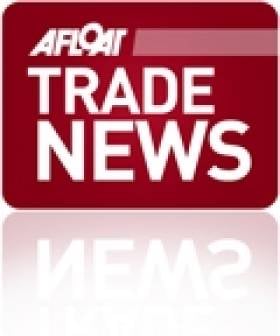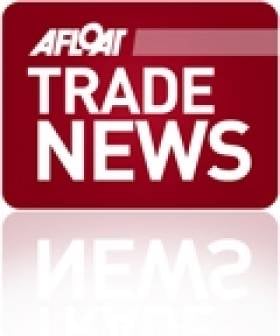Displaying items by tag: Power
#TradeNews - Suzuki has unveiled its latest lightweight and fuel-efficient outboard engine model in the new four-cylinder DF200A.
The new outboard promises the performance one would expect only from a V6 engine, but from just four cylinders, making it the lightest in its class - like the recently released DF30A and DF25A before it.
Other features include a direct air intake and 'Variable Valve Timing' for higher performance and thermal efficiency, a large 'Big Block' displacement and higher compression ratio for better acceleration and low-end torque, improved sensors for monitoring and controlling internal engine operation, and 'Lean Burn Control Technology' for much improved fuel economy.
Perhaps most importantly, the new DF200A hits the scales at just 225kg, more than 12% less than the current V6 DF200 model.
And all that's aside from the sleek styling that boaters have come to expect from Suzuki.
But for those who want even better tech, the new DF200AP tops the standard model's specs as the first 200HP to market with Suzuki Protection Control for drive-by-wire, and Suzuki Selective Rotation whereby dealers can set up engines in either standard or counter rotation thanks to the specially designed gearing and electronic shift controls.
The DF200AP also features a keyless ignition system, using a coded keyfob that adds an invaluable extra level of protection.
Suzuki's DF200A will be available from dealers later this year, with the DF200AP to follow in early 2015.
Top Ten Boat Names in America Make for Amusing Reading
#BOAT NAMES - The Boat Owners Association of the United States (BoatUS) has released its 22nd annual list of the top ten boat names in America, which makes for some amusing reading.
“A boat name reflects the life and loves of the owner,” says BoatUS's Occoless Trotter. “But it’s hard to sum it all up with just a few words.”
Word play seems to be the biggest attraction for new boat owners in the US. Number one for 2011 is 'Seas the Day', which has appeared in the list for the last number of years, followed by newcomer 'Nauti Boy'.
However, Tom Lochhaas at About.com Sailing says the results should be taken with a pinch of salt, as the list is based only on sales of BoatUS's own lettering kits, and does not distinguish between sailboat and powerboat names ('Aquaholic', anyone?).
He also suggests taking a day or two "to calm down before choosing a boat name, which may serve functions other than giving a chuckle to your fishing buddies when they see you at the dock."
The BoatUS Top Ten Names for 2011:
- Seas the Day
- Nauti Buoy
- Aquaholic
- Dream Weaver
- Pegasus
- Serenity Now
- Second Wind
- Liquid Asset
- Miss Behavin'
- Blew ByYou
Conference Reveals State of Marine Leisure Industry
With boat sales falling by as much as 80%, marina business down 20%, retail sales in chandlery down up to 38%, insurance down 12.5% the marine industry in Ireland and Wales had to take some action to ensure the marine trade and leisure industry survives.
An unusual industry conference took place in Dun Laoghaire today and yesterday with the objective of understanding where the industry is right now and how it needs to act to ensure that it survives the downturn in our economies.
Over 125 marine businesses from both sides of the Irish Sea will be attending in what will be the largest marine leisure Industry gathering ever brought together.
A joint address was given by the Executive Director of the British Marine Federation, Howard Pridding and David O'Brien the Chairman of the Irish Marine Federation set the scene as to where the industry is on both sides of the Irish Sea.
The conference heard from 3 companies who operate in the sector. One from each region, North Wales, South Wales and Ireland who will share with the conference their experiences in the current economic climate on how they are surviving and thriving in the downturn. Business tactics that need to be deployed were explored with a leading business and innovation specialist from Wales together with joint talks by Visit Wales and Failte Ireland on the development of marine leisure tourism.
Leading economist Jim Power delivered a talk on the economic situation and when we might begin to see some consumer confidence return to our markets.
The Pembroke Coastal Forum told how they have managed their coastline and environment and how they have facilitated marine leisure tourism through proper marine spatial planning.
The conference is being organised by irish-sea.org and Ireland/Wales Interreg IV A Programme funded by the European Region Development Fund.
Irish-sea.org has three partners, North Wales Watersports, South West Wales Marine Federation and the Irish Marine Federation.
































































